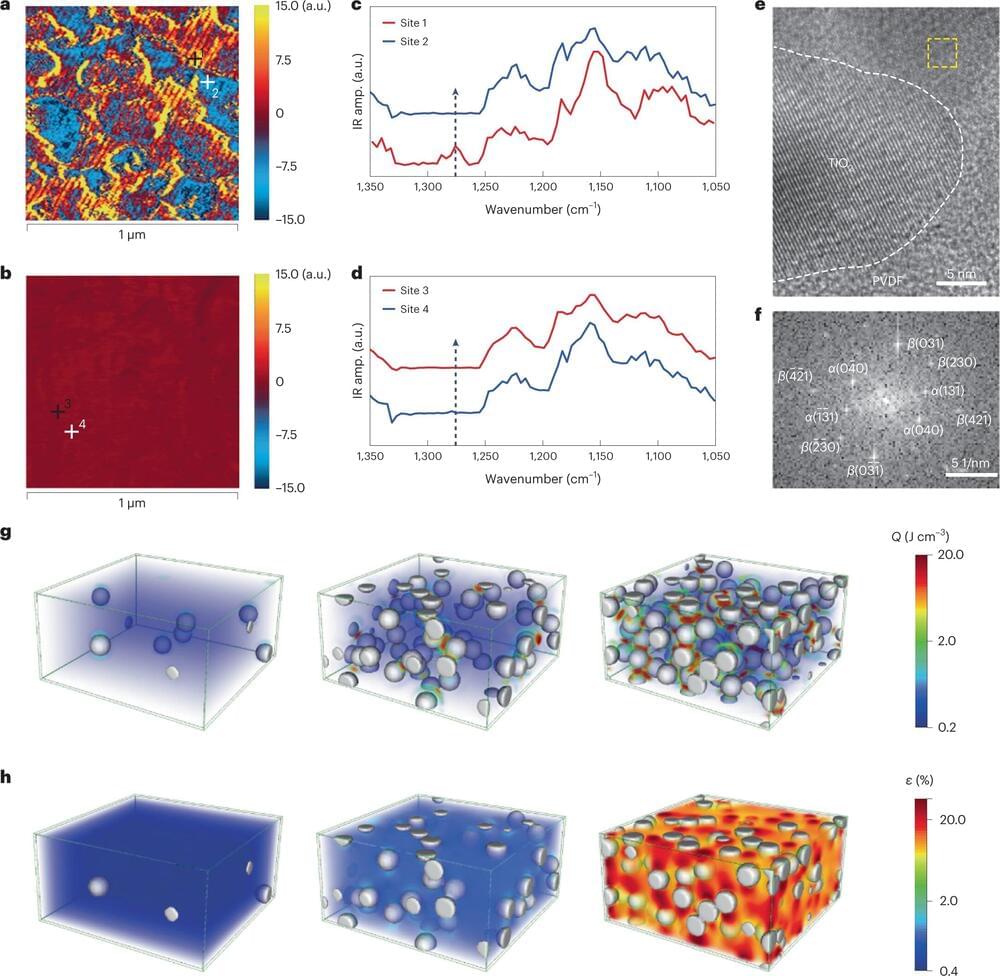A new type of ferroelectric polymer that is exceptionally good at converting electrical energy into mechanical strain holds promise as a high-performance motion controller or “actuator” with great potential for applications in medical devices, advanced robotics, and precision positioning systems, according to a team of international researchers led by Penn State.
Mechanical strain, how a material changes shape when force is applied, is an important property for an actuator, which is any material that will change or deform when an external force such as electrical energy is applied. Traditionally, these actuator materials were rigid, but soft actuators such as ferrroelectric polymers display higher flexibility and environmental adaptability.
The research demonstrated the potential of ferroelectric polymer nanocomposites to overcome the limitations of traditional piezoelectric polymer composites, offering a promising avenue for the development of soft actuators with enhanced strain performance and mechanical energy density. Soft actuators are especially of interest to robotics researchers due to its strength, power and flexibility.
